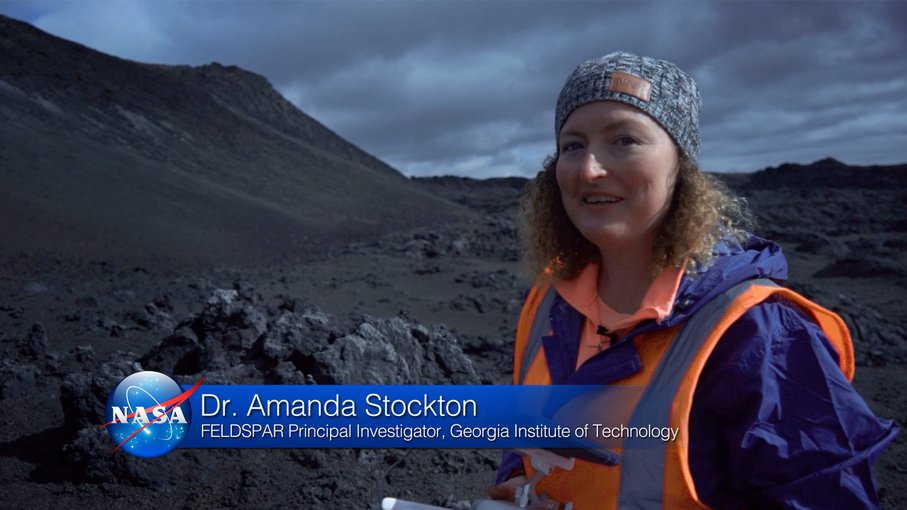Oct 01, 2019 - Atlanta, GA
When she wasn't in a Georgia Tech classroom in 2018, Amanda Stockton was likely found in the extreme environment of Iceland, in a fire-and-ice scene right out of a "Game of Thrones" episode.
Stockton's work among the volcanoes and glaciers could tell us more about the prospect of habitability – developing and sustaining life – in extreme environments elsewhere in our solar system, such as Mars or the moons of Jupiter and Saturn.
“Searching for Habitability at the Extremes," the title of a Stockton lecture about her NASA work, is also the focus of Season 3 Episode 3 of ScienceMatters, the podcast of the Georgia Tech College of Sciences.
Stockton, an assistant professor in the School of Chemistry and Biochemistry, is part of a NASA program called FELDSPAR, or Field Exploration and Life Detection Sampling through Planetary Analogue Sampling. Since flying to areas around the solar system is rather expensive, it’s a lot cheaper to use locations on Earth that are terrestrial analogs of these extremes, to better understand whether those places could actually be habitable.
Each ScienceMatters episode includes a quiz that refers to facts mentioned in each podcast. A winner will be chosen randomly from all who submit correct answers. Winners will receive special College of Sciences merchandise such as t-shirts and pens.
The Episode 3 quiz question:
Scientists think this region of Chile comes closest to mirroring the terrain that might be found on Mars. What is the name of this area?
The winner will be announced in the following week.
Submit your answer here: https://forms.cos.gatech.edu/sciencematters-season-3-episode-3-quiz
ScienceMatters podcasts are available for subscription at Apple Podcasts and Soundcloud.
